It’s that time of year again. The sun is shining, the beach is inviting and hopefully you’ll have a little bit of downtime to spend with your loved ones over the holiday period. If you’re looking for something to read, then we’ve got you covered!
The Per Capita Progressive Summer Reading List is released in December each year, and in it we compile the books from the past year that we found most interesting, most compelling, and most innovative from a progressive standpoint.
This collection has been curated to inspire, encourage and enliven your summer, and we hope that these books help frame your thinking, as they have ours. More importantly, we’re offering the opportunity for one lucky supporter to win the full set!
All you have to do is donate at least $10 (or more if the Christmas spirit takes you!) to our Christmas campaign to enter the draw to win all ten titles.
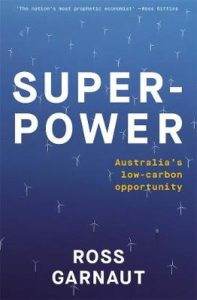
Superpower – Ross Garnaut
In this compelling new book from one of Australia’s leading economic thinkers, Ross Garnaut offers a road map for the Australian economy that allows our nation to address the twin crises of economy and climate. An insightful and provocative look at the opportunities of a low carbon economy, this book offers promise for the future.
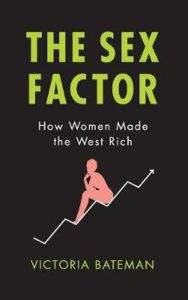
The Sex Factor – Victoria Bateman
Why did the West become so rich? Why is inequality rising? How ‘free’ should markets be? And what does sex have to do with it? In this passionate and skilfully argued book, Victoria Bateman shows how we can only understand the burning economic issues of our time if we put sex and gender – ‘the sex factor’ – at the heart of the picture. Spanning the globe and drawing on thousands of years of history, Bateman tells a bold story about how the status and freedom of women are central to our prosperity. This iconoclastic book is a devastating exposé of what we have lost from ignoring ‘the sex factor’ and of how reversing this neglect can drive the smart economic policies we need today.
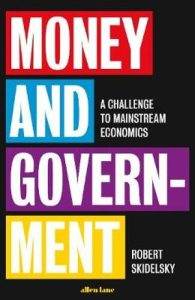
Money and Government – Robert Skidelsky
In his new book, Robert Skidelsky takes aim at the erroneous belief that economic outcomes are best left to the ‘invisible hand’ of the market. While Money and Government is primarily an economic history of the ideas that influence monetary policy, throughout the text Skidelsky builds a well- researched and thoroughly convincing argument in favour of government intervention
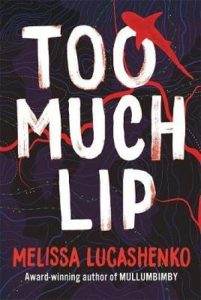
Too Much Lip – Melissa Lucashenko
Summer reading has to involve some non-fiction, and we’re sure you’ll agree that Melissa Lucashenko’s Too Much Lip is one of the best novels for progressives this summer. Set in the fictional Australian town of Durrongo, this dark comedy tells the stories of generations of an Aboriginal family living on Country. Secrets are unravelled, character flaws are revealed and the traces of settler-colonial violence and intergenerational trauma weave throughout their lives.
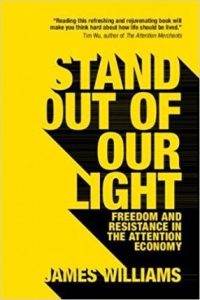
Stand Out Of Our Light – James Williams
Written by a former Google advertising strategist, turned Oxford-trained philosopher, James Williams describes how the best minds of our generation are working to keep us addicted to our devices. He argues that as information becomes ever more plentiful, the resource that is becoming more scarce is our attention. In this ‘attention economy’, we need to recognise the fundamental impacts of the new information environment on our lives in order to take back control. This book is a life-changing call to arms against the corporate interests that seek to monopolise our attention.
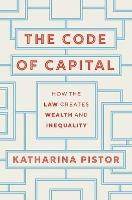
The Code of Capital – Katharina Pistor
What role does the law play in shaping inequality? In this revealing book, Katharina Pistor argues that the law selectively “codes” certain assets, endowing them with the capacity to protect and produce private wealth. With the right legal coding, any object, claim, or idea can be turned into capital. This timely analysis reveals the ways that legal systems protect and entrench inequality, and offers insights into what a new code might look like.
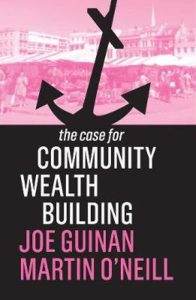
The Case for Community Wealth Building by Joe Guinan and Martin O’Neill
Joe Guinan and Martin O’Neill provide a succinct introduction to community wealth building, an economic development approach used in Great Britain and America, in cities that have been ravaged by economic decline. They delve into the arguments for and against community wealth building and explain how it is a practical alternative to neoliberalism that can be the building blocks for the wider systemic change required for a more equal and democratic economy. In the wake of Labor’s federal election defeat and the recognised need for an economic message that speaks to communities that feel left behind, it provides some food for thought.
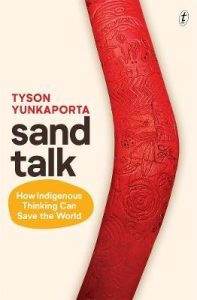
Sand Talk – Tyson Yunkaporta
A perfect follow up for those who have read Dark Emu and want to learn more about the knowledge and culture of our First Nations, Sand Talk is an introduction to a different way of knowing a learning. Drawing on discussions with elders and First Peoples from across the continent, Tyson Yunkaporta employs ‘sand talk’, the Aboriginal custom of drawing images on the ground, to convey knowledge. Innovative and enlightening, this ground-breaking book will stay with you long after you put it down.
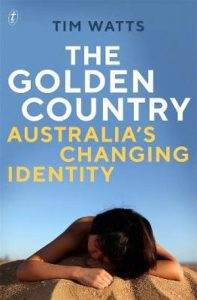
The Golden Country – Tim Watts
Beginning with his own family history, Watts explores national identity, immigration and multiculturalism through Australia’s history of migration and exclusion. He delves into the paradox that Australia’s dramatic change in demography in recent years was driven by decisions made by John Howard, but at the same time, Howard contributed to our inability to discuss questions of national identity, meaning we have ended up as a multicultural nation with monocultural institutions. Exploring the challenges we face such as ongoing institutional discrimination, particularly for Asian-Australians, he lays out the importance and necessity of an inclusive Australian identity.
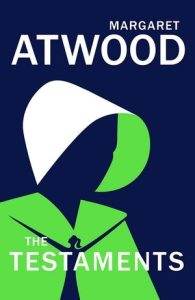
The Testaments – Margaret Atwood
Perhaps an obvious choice for inclusion, but it’s impossible to go past Atwood’s Booker Prize winning sequel to The Handmaid’s Tale. Written in her signature adroit and evocative prose, Atwood finally answers the question to which generations of readers have long sought the answer: what happened to Offred? Skilfully melding the worlds of her original novel and the recent television series it inspired, this tightly plotted story lays bare the creeping nature of authoritarianism and exposes both the frailty and power of individuals when confronted with the forces of systemic oppression. At once erudite and accessible, The Testaments is ultimately a story of hope, and a reminder that resistance is anything but futile.

